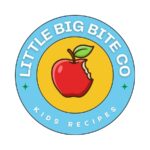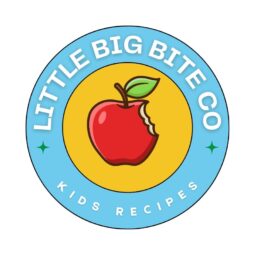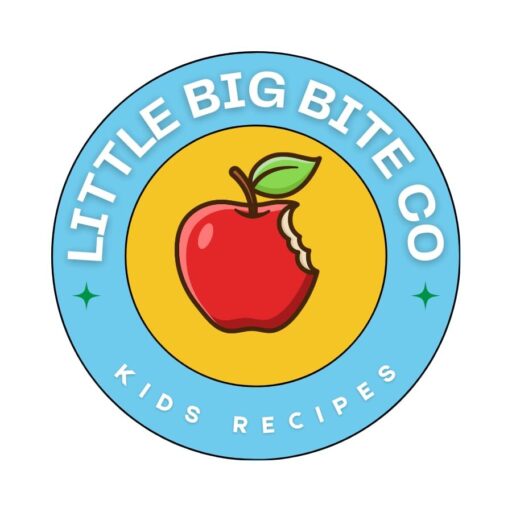No products in the cart.
Common Questions Nigerian Parents Ask About Kids Food (With Real Answers)
When it comes to feeding children, Nigerian parents have plenty of questions—and rightfully so. From cultural expectations to modern health advice, it can feel overwhelming to figure out the best way to nourish your little one.
At Little Big Bite Co, we get these questions every day. Whether you’re a new parent in Lagos or raising kids in London, here are the most common questions Nigerian parents ask about kids’ food—and the answers that will help you feel more confident at mealtime.
🥣 1. What should I feed my baby when they start solids?
Great question! Babies can start solids from around 6 months—but the key is to begin with soft, simple, and iron-rich foods.
Good first foods for Nigerian babies:
- Mashed sweet potatoes
- Blended beans (e.g. moi moi paste thinned out)
- Mashed avocado
- Soft mashed rice with fish
- Pap with mashed banana (no sugar!)
Avoid salt, sugar, and seasoning cubes. Your baby’s kidneys are still developing, and they don’t need extra flavoring to enjoy food.
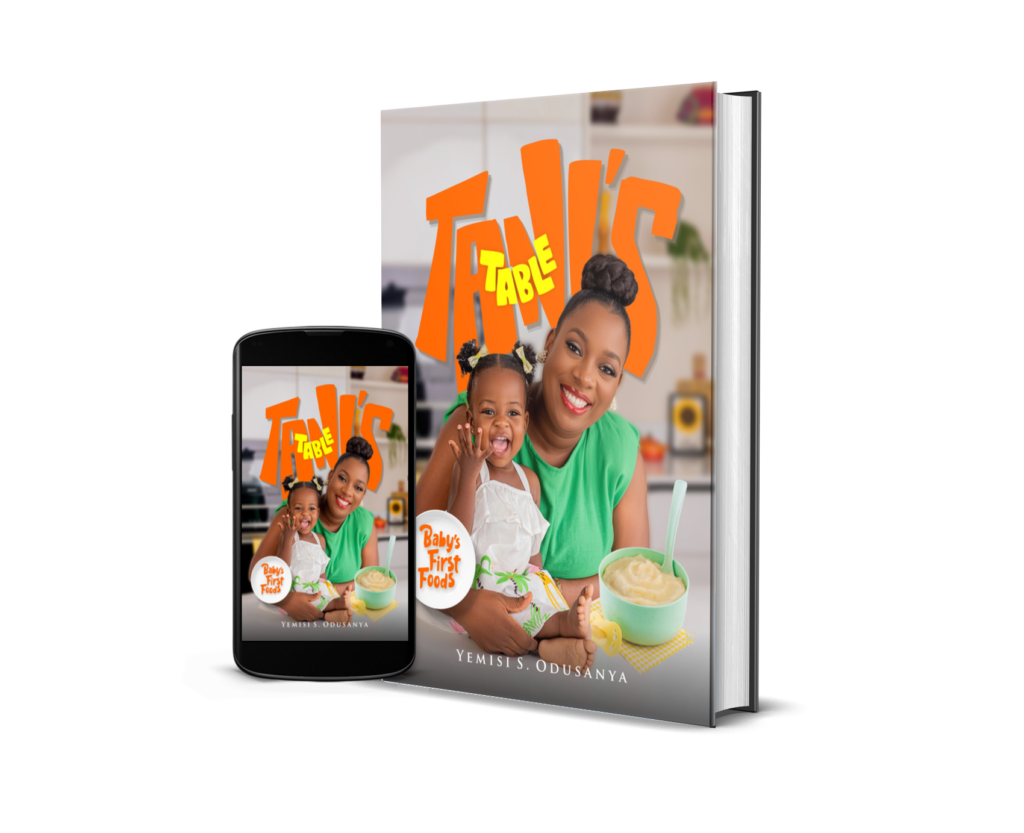
BABY’S FIRST FOODS : Tani’s Table
“Tani’s Table” is a lovingly crafted guide to introducing Nigerian-inspired flavors and nutritious meals to babies, guiding parents through the crucial stages of their child’s early feeding journey. This book celebrates the richness of Nigerian cuisine while providing practical advice tailored to each stage of a baby’s development. “Tani’s Table” is a go-to resource for Nigerian parents and car…
Original price was: ₦10,000.00.₦7,000.00Current price is: ₦7,000.00.
🥦 2. How do I get my child to eat vegetables?
You’re not alone! Many Nigerian parents struggle with this.
Try this:
- Blend vegetables into sauces (e.g. ugu or spinach into stew or Jollof)
- Use fun shapes—cut carrots like stars or hearts
- Make smoothies with fruit + spinach or kale
- Try stir-fried veggies with little coconut oil and sweet corn
🍽 Tip: Offer the same vegetable multiple times, cooked in different ways. Kids often need repeated exposure to accept new flavors.
🍳 3. Can my child eat our regular Nigerian food?
Yes—but with adjustments. Most Nigerian meals can be made healthy and child-friendly.
Example:
- Remove excess pepper or seasoning
- Use less oil and salt
- Add more veggies or soft proteins (e.g. shredded chicken or flaked fish)
So yes, your child can eat Jollof rice, okra soup, beans, yam porridge, and more—just tweak it to suit their age and stage.
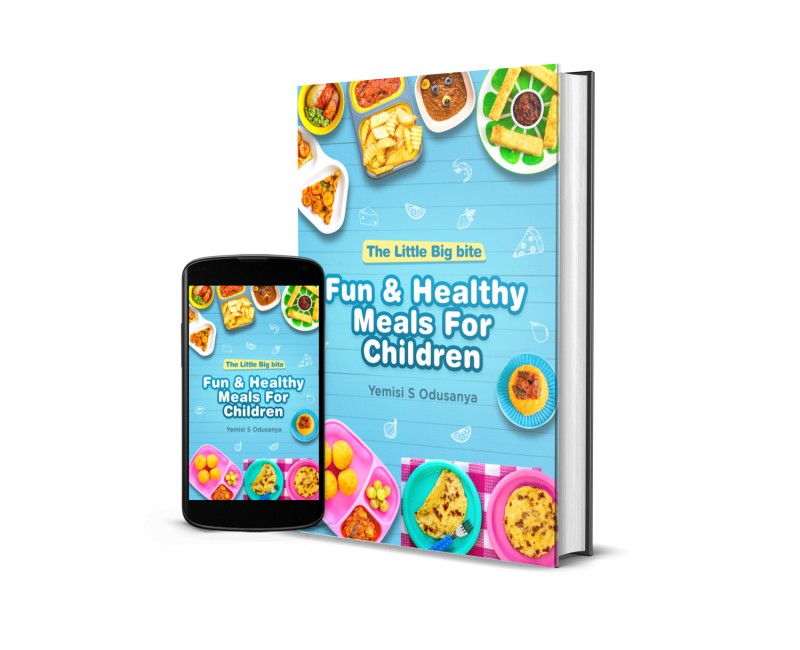
THE LITTLE BIG BITE : Fun & Healthy Meals For Children
Little Big Bite is a Nigerian – centric Children’s Cookbook (Nigerian kids recipes). As a mom of 5 , I am very involved in what they eat and I have gone through picky eating, not knowing what to feed my children to eventually figuring it out. This book is for anyone trying to feed children exciting, yummy, healthy meals that are guaranteed plate-clearers. These meals are presen…
Original price was: ₦12,000.00.₦7,000.00Current price is: ₦7,000.00.
🧂 4. Is it okay to use seasoning cubes in my child’s food?
This is one of the most asked questions, and the short answer is:
❌ No, especially not for babies under 1 year.
⚠️ For older kids, it’s best to reduce use or avoid entirely.
Why? Most seasoning cubes are high in sodium and contain additives that can harm growing kidneys and contribute to long-term health issues.
Alternatives:
- Use crayfish, onions, garlic, ginger, or herbs
- Make your own stock from fish or chicken
- Blend fresh tomatoes, bell peppers, and onions for a flavorful base
🥗 5. How do I build a balanced plate for my child?
Think of a plate divided into:
- ½ vegetables or fruit
- ¼ carbs (rice, yam, sweet potato, pasta, eba, etc.)
- ¼ protein (beans, eggs, fish, chicken, meat)
Sample Balanced Nigerian Kids Plate:
- Jollof rice (carb)
- Shredded grilled chicken (protein)
- Steamed carrot & green beans (veg)
- Watermelon slices (fruit)
🥡 6. What can I put in my child’s lunchbox?
It depends on their age, but here are ideas that are both nutritious and Nigerian-approved:
- Moi moi cups
- Egg wraps with plantain
- Mini puff puff (low sugar)
- Spaghetti with veggies
- Akara with oat pap
- Fruit skewers
🎒 Tip: Keep it simple. Make sure it’s easy to eat, not too messy, and still nutritious.
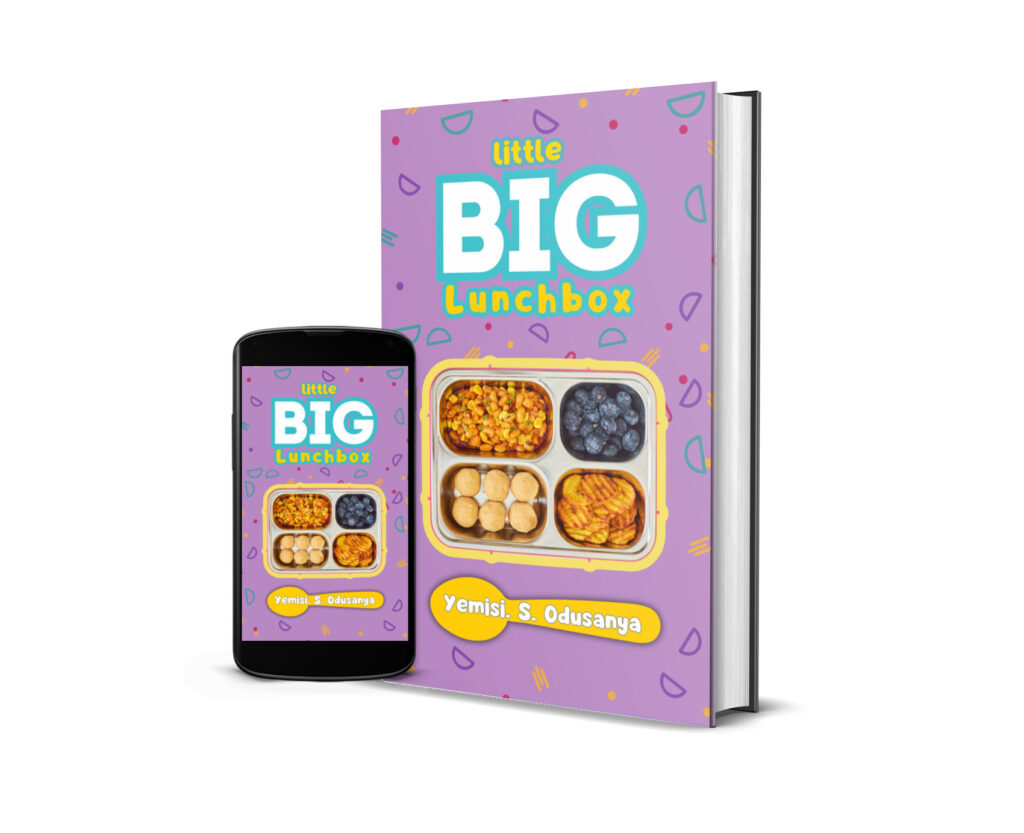
LITTLE BIG LUNCHBOX – Fun and Healthy Lunch Ideas For Children
Discover Little Big Lunchbox, your go-to guide for creating fun, nutritious, and easy-to-pack meals that kids will love (Nigerian kids recipes)! Packed with meal lists, meal plans, practical lunchbox tips, and creative inspiration, this book makes it simple to fuel your child’s day with healthy, balanced options—whether you’re a busy parent or just looking for fresh ideas!</st…
Original price was: ₦8,000.00.₦5,000.00Current price is: ₦5,000.00.
🧁 7. How many times should my child eat in a day?
Children typically need:
- 3 main meals (breakfast, lunch, dinner)
- 2 healthy snacks (mid-morning and afternoon)
🍼 Babies might still need breastmilk or formula in between solids.
Snacks can include: boiled eggs, fruit slices, yogurt, akara, or a small bowl of cereal.
💡 8. My child is a picky eater. What do I do?
This is normal and often just a phase. The goal is not to force, but to gently guide.
Try:
- Offering variety without pressure
- Eating together as a family
- Making food look fun and colorful
- Involving your child in cooking or serving
💬 “You don’t have to eat it, but it’s okay to taste it.” – This phrase reduces resistance.
Final Thoughts
You’re not a bad parent if your child refuses vegetables, skips a meal, or prefers white rice over everything. These are common challenges Nigerian parents face—but with the right information and support, you can build healthier habits one bite at a time.
✨ Need more guidance?
Check out our Free Kids Meal Plan or explore our Nigerian Kids Food Library for inspiration.
